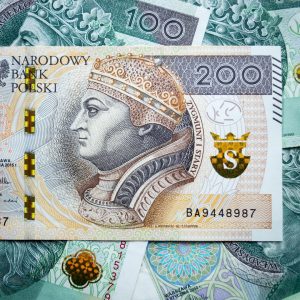The History of Forex: What Does Forex Mean and How did it Evolve over Time?
Forex, short for foreign exchange, is the decentralized global market where currencies are traded. It is the largest and most liquid financial market in the world, with an average daily trading volume exceeding $6 trillion. But what does Forex really mean, and how did it evolve over time? Let’s delve into its fascinating history.
The concept of exchanging one currency for another has been around for centuries. In fact, the origins of Forex can be traced back to ancient times when people started trading goods and services with each other. As trade between different nations increased, the need to convert one currency to another became essential.
However, it was during the Middle Ages that the first formal currency exchange market emerged. Merchants in different regions began to establish currency exchange booths, allowing them to convert different currencies at specified rates. These booths served as the early predecessors of today’s Forex market.
The modern Forex market as we know it today began to take shape in the early 1970s. Prior to this, most currencies were fixed to the value of gold under the Bretton Woods system. However, in 1971, then US President Richard Nixon ended the convertibility of the US dollar to gold, effectively abolishing the gold standard. This move led to the birth of the floating exchange rate system, where currency values were determined by market forces.
With the adoption of floating exchange rates, currencies started to fluctuate in value relative to one another. This created opportunities for traders to profit from these fluctuations. In the 1980s, advances in technology, particularly in telecommunications and computing, revolutionized the Forex market. The introduction of electronic trading platforms and computer networks enabled traders to access real-time currency quotes and execute trades from anywhere in the world.
The 1990s marked another significant milestone in the evolution of Forex with the advent of the internet. Online Forex trading platforms emerged, allowing individual investors and retail traders to participate in the market alongside large financial institutions. This democratization of access to the Forex market opened up new opportunities for individuals to profit from currency trading.
As the Forex market continued to grow, so did the range of financial instruments available for trading. Initially, currency trading was limited to spot transactions, where currencies were bought and sold for immediate delivery. However, with the introduction of derivatives, such as forwards, futures, and options, traders gained the ability to speculate on future currency movements and hedge against potential risks.
In recent years, the Forex market has witnessed further advancements driven by technological innovation. Automated trading systems and algorithmic trading have become increasingly popular, allowing traders to execute trades based on pre-programmed instructions. High-frequency trading, where computers analyze vast amounts of data and execute trades within milliseconds, has also gained prominence.
Furthermore, the rise of cryptocurrencies has had an impact on the Forex market. While not directly part of the traditional Forex market, cryptocurrencies like Bitcoin have emerged as alternative digital currencies that can be traded against traditional fiat currencies. This has added a new dimension to the Forex landscape, attracting traders seeking to diversify their portfolios and capitalize on the volatility of cryptocurrencies.
In conclusion, the history of Forex is a story of evolution driven by trade, technology, and the changing dynamics of the global economy. From the ancient currency exchange booths to the modern electronic trading platforms, Forex has come a long way. It has transformed from a market primarily accessible to financial institutions to one that is open to individual traders worldwide. As technology continues to advance, the Forex market will undoubtedly continue to evolve, presenting new opportunities and challenges for traders.





